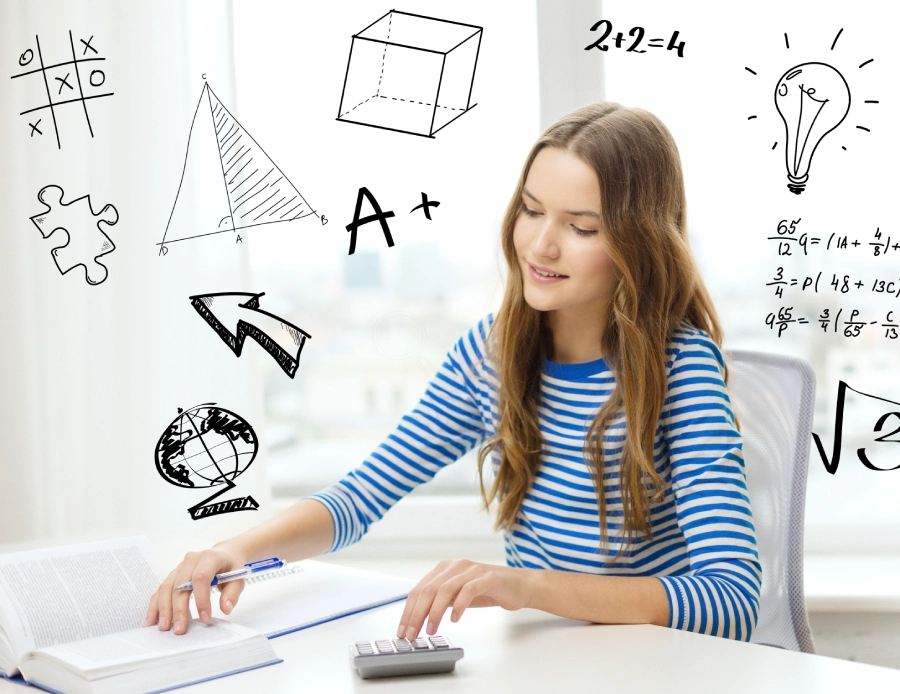Additional Content:
Deeper exploration of core subjects.
Assessment:
Internal Assessment (IA):
Conducting an individual investigation.
External Assessments: Examinations covering both core and optional
topics.
Emphasis for Both Levels:
Conceptual Understanding: Greedy
essential physics concepts.
Experimental Capabilities: Cultivating sensible and analytical talents.
KS1 Maths Tutor Online for Years 1 & 2

KS1 Maths Tutor Online
for Years 1 & 2
Key Stage 1 Mathematics is the foundational bedrock of your child's learning journey. Designed for children in Years 1 and 2 (ages 5–7), our programme delivered by an experienced KS1 maths tutor online is carefully structured to do more than teach numbers. We aim to ignite genuine curiosity and enjoyment for maths while building deep, lasting confidence.
Drawing directly from the National Curriculum Key Stage 1 maths framework, our lessons focus on developing fluency with fundamental concepts, strengthening mathematical reasoning, and building resilience in problem solving. This approach prepares children not just for school assessments, but for long-term success in mathematics.
Why Choose Our KS1 Maths Tutor Online?
Unlike later key stages that follow specific exam boards, Key Stage 1 is structured around the Department for Education’s National Curriculum. Our KS1 maths tutoring online is fully aligned with this framework, ensuring your child develops the exact skills, knowledge, and understanding expected at school.
Through supportive one-to-one guidance from a KS1 maths tutor online, children are gently prepared for their end-of-stage assessments as part of Year 2 SATs preparation. Lessons are delivered in a positive, confidence-building environment where understanding always comes before test-taking.
What KS1 Maths Tutoring Online Offers
In-depth coverage of the complete KS1 National Curriculum to ensure no gaps in learning.
Regular, fun, and engaging practice supported by detailed and encouraging feedback.
Focused and personalised support similar to private online tutoring.
Development of persistence and concentration to help children solve multi-step problems.
Familiarisation with SATs-style questions through playful activities that reduce anxiety.
Clear, child-friendly explanations combined with ample practice to build secure understanding.
Gentle assessments and progress tracking through structured KS1 maths tutoring online.
The Key Stage 1 SATs consist of two papers: Paper 1 (Arithmetic) and Paper 2 (Reasoning). Both papers are fully covered by our KS1 maths tutor online.
Key Topics Covered Under Key Stage 1 Mathematics
Our curriculum follows the mathematical domains outlined in the National Curriculum. Through our KS1 maths tutoring online approach, problem solving and mathematical reasoning are integrated into every topic.
-
Number and Place Value
Children develop a strong understanding of numbers by counting forwards and backwards to 100, reading and writing numbers, recognising tens and ones, and using terms such as more than, less than, and equal to.
-
Addition and Subtraction
Fluency is built through secure number bonds to 20 and related subtraction facts. Children add and subtract one-digit and two-digit numbers and apply these skills to practical problems.
-
Multiplication and Division
Multiplication and division are introduced through hands-on learning, helping children understand grouping, sharing, and times tables.
-
Fractions
Fractions are introduced visually and intuitively, including one-half (1/2) and one-quarter (1/4).
-
Measurement
Children measure length, mass, capacity, time, and solve simple money problems using standard units.
-
Geometry
Learners recognise 2D and 3D shapes and describe position, direction, and movement.
-
Statistics
Children collect and interpret data using pictograms, tally charts, and block diagrams.
Build Confidence with a KS1 Maths Tutor Online
Confidence in mathematics develops when children feel supported and secure. Through structured guidance from a KS1 maths tutor online, each child progresses at a comfortable yet challenging pace.
By addressing misconceptions early and encouraging children to explain their thinking, understanding becomes stronger and more consistent.
Jaya’s Academy helps children move confidently through Key Stage 1 maths with clarity, independence, and a positive attitude towards learning.
Additional Content:
Deeper exploration of core subjects.
Assessment:
Internal Assessment (IA):
Conducting an individual investigation.
External Assessments: Examinations covering both core and optional
topics.
Emphasis for Both Levels:
Conceptual Understanding: Greedy
essential physics concepts.
Experimental Capabilities: Cultivating sensible and analytical talents.

 United Kingdom
United Kingdom Middle East
Middle East Australia
Australia United States
United States Europe
Europe Canada
Canada



